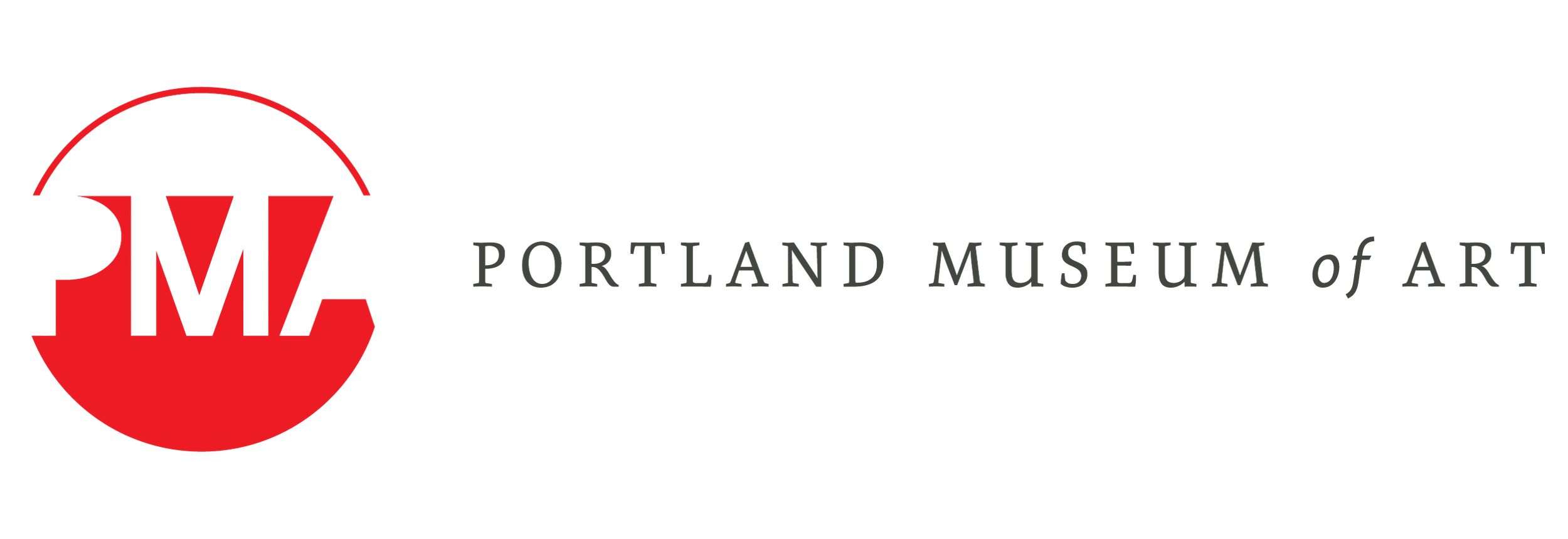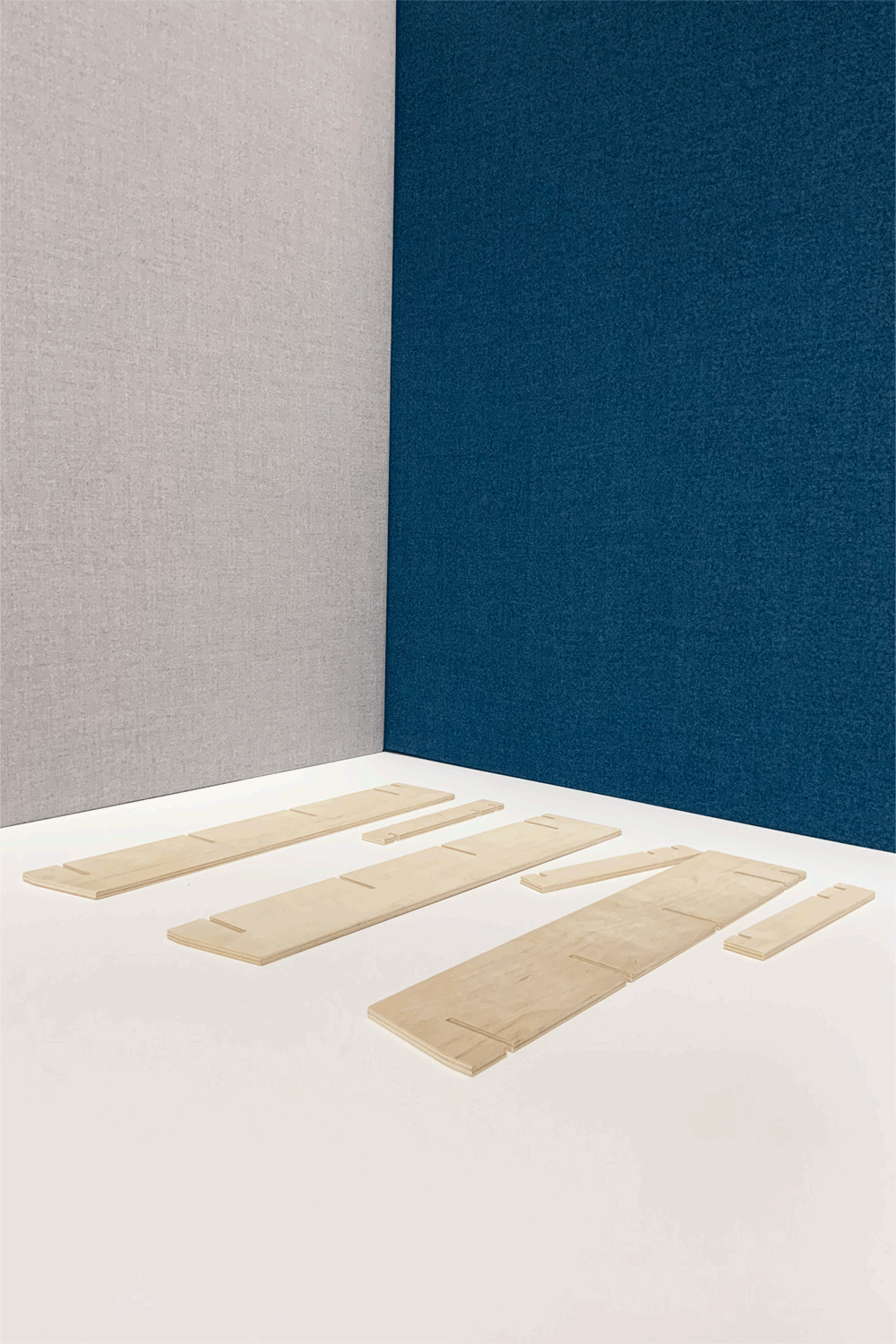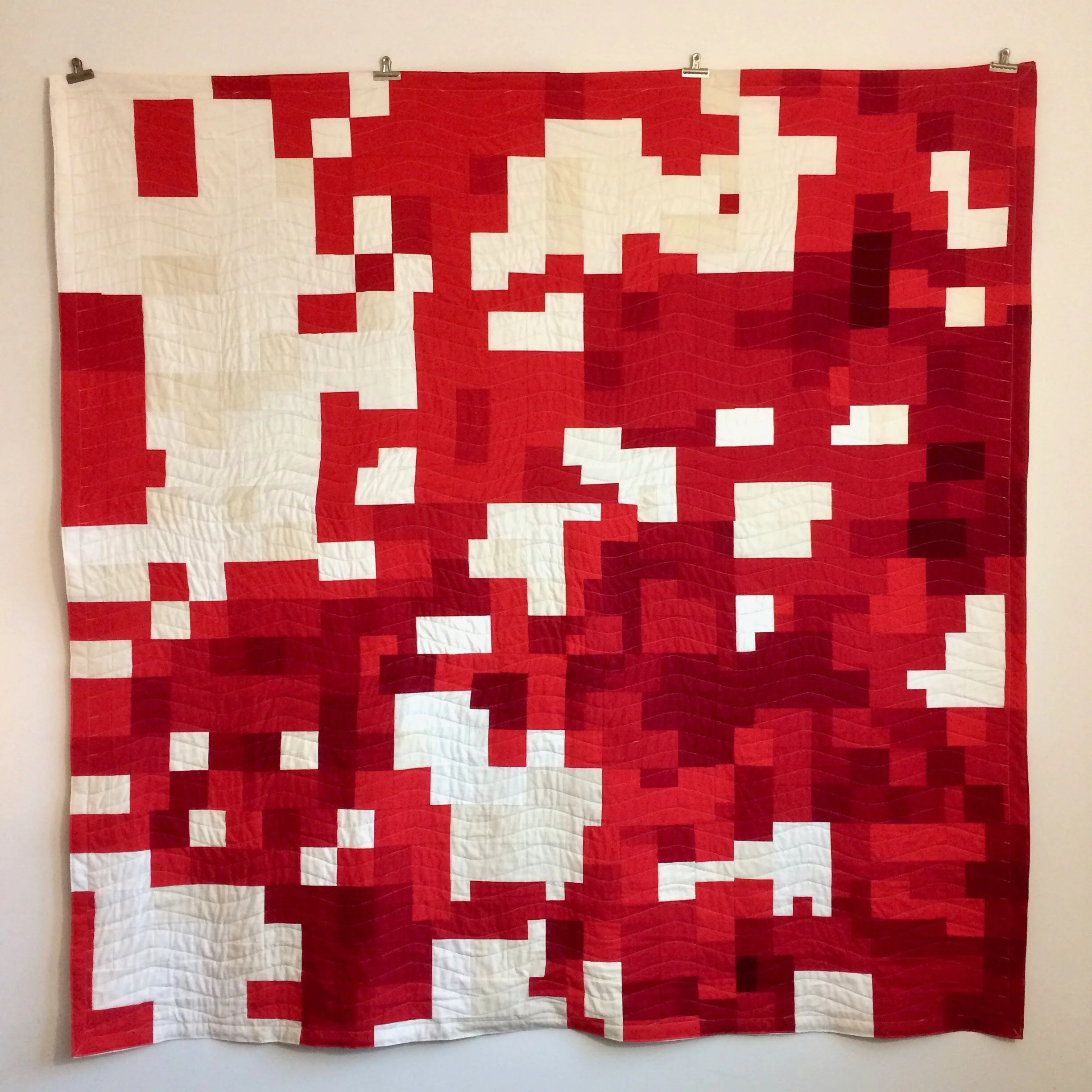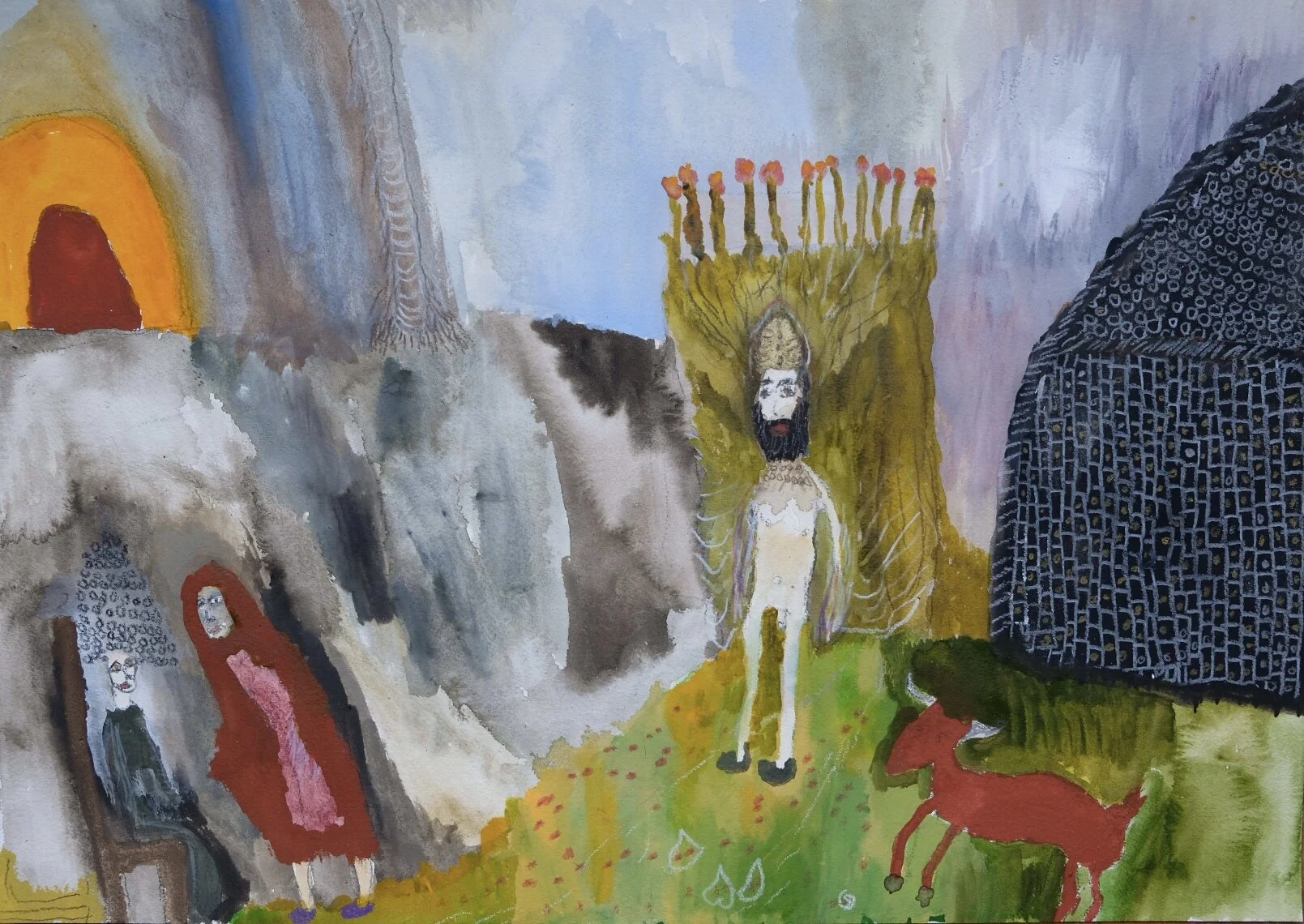They say that hindsight is 2020—we asked hundreds of Maine artists to test the theory.
The events of 2020 profoundly impacted artists in different ways. From personal hardships due to the COVID-19 pandemic, concerns around the election and political instability, and solidarity with a coalescing movement against systemic racism, featured works in Untitled, 2020 record how artists working in Maine were coping with, and responding to, this pivotal moment in our history.
Click Here to Read More
In September 2020, the PMA announced an open call to artists for this juried exhibition. Open to all media, the only requirement was that the artworks be created in Maine in 2020. Over 900 artists uploaded portfolios to Submittable, an online application system, where each artist could submit up to five objects for consideration. The jury, consisting of artists Katherine Bradford, Cody Castle-Stack, Jeremy Frey, Séan Alonzo Harris, and Ayumi Horie, reviewed each submission independently and then convened over Zoom for a handful of meetings. After much deliberation, the jurors selected 25 artists and specific artworks that address isolation and connection, parenting and family, justice and politics, the body, and much more.
Many artists are familiar with working in isolation but working alone during 2020 took on a new universal meaning, especially with the shelter in place ordinance. Muralist Ryan Adams created a digital print inspired by a Kendrick Lamar song, the mantra of ‘We Gonna Be Alright,’ which he repeated in his head to remain calm and focused throughout the initial days of quarantine. Elijah Ober created a new video using three-dimensional modeling tools that is based on the parameters of his South Portland backyard, a place for interiority and reflection. Similarly, Giles Timms' animated film depicted an alternate world that offers both moments of escape and insight for the viewer. Julie Poitras Santos, on the other hand, connected the Maine community through her “prompts for walking” and artist-led walks to foster new ways of seeing and togetherness. The characters in Anna Dibble's paintings wear masks, walk in opposite directions, or ride together in boats, suggesting moments of solitary confinement, vulnerability, and resilience. Finally, love—Enrique Mendía experimented with storytelling through photographs and words in a loose-leaf book of simple materials, such as construction paper, tape, and markers, to narrate a romance.
Isolation and connectedness meant something different for families and caretakers. In her abstract paintings, Celeste Henriquez reflected on her role as a parent and caregiver. Similarly, mother and photographer Meghan Mitchell felt invisible after devoting more time than ever to her children and captured this sentiment in her new pictures, where she is concealed under a sheet or blanket yet surrounded by children. Furniture designer Charles Schreiber designed a flat packed bed for his son to provide a stable and sturdy platform for a comfortable night’s sleep. Photographer Rosamond Gross, who spent six months in lockdown with her family of four, embraced the chaos of everyday life and captured ordinary moments, such as the Fourth of July celebration, that felt extraordinary during the pandemic.
Some artists turned to the power of art to comment on social injustices and politics and lead the charge for change. ARRT! (Artists’ Rapid Response Team!) made over 50 posters that were displayed on lawns around Lincoln County as well as at anti-racism and post office rallies to proclaim support for social change. Rachel Church created a text-based print that is reminiscent of the American flag to encourage the viewer to act with compassion and empathy for all people in the land of the free. Titi de Baccarat transformed recent events and tragedies against Black people into a unique visual language to raise awareness about questions of justice and equality. Meanwhile, Christopher Dudley fabricated a quilt off a 2012 infographic about government benefits in The New York Times to convey his dismay on economic and social disparities in the United States. Performance artist and sculptor Deborah Wing-Sproul reflects on social, cultural, financial, and political inequities amplified by the events of 2020 in her new work, Meet me at the pool. Lastly, Greta Bank’s new installation reexamines the story of Narcissus, specifically definitions of beauty and decay, to imagine the future, or as she described, “a destiny etched in stone due to capitalism.”
Food and politics also coalesce in some sculptures. Evelyn Wong recalls the history of mooncakes in Asian culture and the tradition of secret messages used to overthrow a tyrant to coincide with the 2020 U.S. presidential election. Similarly, Joshua Reiman, who believes food is political, organized a sculpture of his personal dish collection to represent thousands of years of oppression; according to him, “the dirty dishes of our past will never be cleaned away.”
The use of or reference to the body is also a strategy employed by artists to reclaim agency and authority to correct false histories. Reminiscent of bodily forms and various lifecycles, the crocheted-fiber sculptures by Ashley Page weave together voices, stories, and memories that redefine narratives about the Black female body. Sculptor Veronica Perez utilized artificial hair and flowers as well as other kitschy materials to serve as personal and universal commentaries on contemporary Latinx issues. Eleanor Kipping created the two-channel video, Are You Happy, of personal and found footage, sound, and prose to guide the viewer through considerations of Black life and death, joy, guilt, and loss.
Other artists sought refuge in their studios, where they continued with their various artistic pursuits. The resulting artworks were not pandemic related per se but created within the challenging backdrop of 2020 and remind us of the rich legacies of craft and painting in Maine. Material, process, and intuition remain core concepts in the sculpture of Steve Bartlett, whose large-scale wood sculptures draw on elements of abstraction, the human body, and nature. Painter Sally Stanton embarked on a new body of figurative works—a longstanding tradition by Maine painters. The watercolors by Greg Jamie are part of an ongoing series of paintings that play with folklore as a non-nostalgic, immediate, and dreamlike form. Whereas swirls of spray-painted marks convey the dynamism of life in Henry Austin’s painting 77.
Reflecting on 2020, it is crystal clear from both the abundance of submissions and the selected artworks that artists working in Maine in 2020 were as resilient, steadfast, and as passionate as ever. In retrospect, this exhibition will serve as a visual time capsule of a historic moment, and with time, hindsight may just appear 2020.
Take The Tour
Behind The Artworks
Hear from the artists themselves, learn more about their inspiration, and discover how 2020 affected their artistic practice first hand.
A Tribute to Helen E. and William E. Thon
William Thon, Paul Juley, photographer, © Peter A. Juley & Son Collection, Smithsonian American Art Museum
WILLIAM E. THON IS MOST RENOWNED FOR HIS PLANNED-GIVING GIFT TO THE PMA IN 2000, TO SUPPORT CONTEMPORARY AND MAINE ARTISTS AND ART. THAT LEGACY CAME FROM HIS LIFE AS A GREAT ARTIST.
In a year in which a major pandemic disrupted exhibition calendars at museums throughout the world, it is also thanks to the generosity and flexibility of the Thon bequest that we were able to quickly pivot to a juried exhibition of artworks made in Maine in 2020.
We remain incredibly grateful to the Thon’s for this support, and we are proud to share with you the remarkable work made by artists in this state through Untitled, 2020.
The Jurors
In September 2020, the PMA announced an open call to artists for this juried exhibition.
Open to all media, the only requirement was that the artworks be created in Maine in 2020. Over 900 artists uploaded portfolios to Submittable, an online application system, where each artist could submit up to five objects for consideration. The jury, consisting of artists Katherine Bradford, Cody Castle-Stack, Jeremy Frey, Séan Alonzo Harris, and Ayumi Horie, reviewed each submission independently and then convened over Zoom for a handful of meetings. After much deliberation, the jurors selected 25 artists and specific artworks that address isolation and connection, parenting and family, justice and politics, the body, and much more.

Related Events
Missed an event? Catch it all here.
Conversations with Maine Artists in a ______ Time, January 2021
Artist and Juror conversation with Ayumi Horie, Christopher Dudley, Julie Poitras Santos, Joshua Reiman, Evelyn Wong, and Meghan Mitchell.
Conversations with Maine Artists in a ______ Time, March 2021
Artist and Juror conversation with Cody Castle-Stack, Greta Bank, Celeste Henriquez, Gregory Jamie, veronica a perez, and Giles Timms.
Conversations with Maine Artists in a ______ Time, May 2021
Artist and Juror conversation with Kathy Bradford, Henry Austin, Anna Dibble, Enrique Mendía, and Elijah Ober.
Conversations with Maine Artists in a ______ Time, February 2021
Artist and Juror conversation with Séan Alonzo Harris, ARRT!ists Natasha Myers and Nora Tryon, Ryan Adams, Titi de Baccarat, Rosamond Gross, Eleanor Kipping, and Ashley Page.
Conversations with Maine Artists in a ______ Time, April 2021
Artist and Juror conversation with Jeremy Frey, Steve Bartlett, Rachel Church, Charles Schreiber, and Deborah Wing-Sproul.
Thank you!
Untitled, 2020: Art from Maine in a ______ Time is generously supported by the following institutions, organizations, businesses, and individuals:
Individual Support
Sue Klein and Tom Joyce
Foundation Support
The Bob Crewe Foundation
Corporate Support
This exhibition is part of Art for All.
Art for All supports the PMA's dedication to being an open, accessible, inclusive, and welcoming museum for all, through exhibitions and programs that reflect our community and create experiences with art that strengthen our bonds and bring us together.
Individual Support
Anonymous (2)
Judy and John Adelman
Justin and Rachael Alfond
Louise Bessire
Mark and Aimée Bessire
Sheri and Joe Boulos
Beth L. De Tine
Patricia H. Dodd
Eileen Gillespie and Timothy Fahey
Shannon C. Gordon
Cyrus Hagge
Alison Hildreth
Douglas and Sharyn Howell
John and Hilary Isacke
Bree LaCasse and Chris Moore
Karen L. McDonald
Manny Morgan and Chris Corbett
Anne and Vince Oliviero
Alexander Porteous
Richard and Alice Spencer
Stewart and Elizabeth Strawbridge
Amy Woodhouse and Tobey Scott
Foundation Support
Elmina B. Sewall Foundation
Franklin P. and Arthur W. Perdue Foundation, Inc.
P.W. Sprague Memorial Foundation
Corporate Sponsors

















































